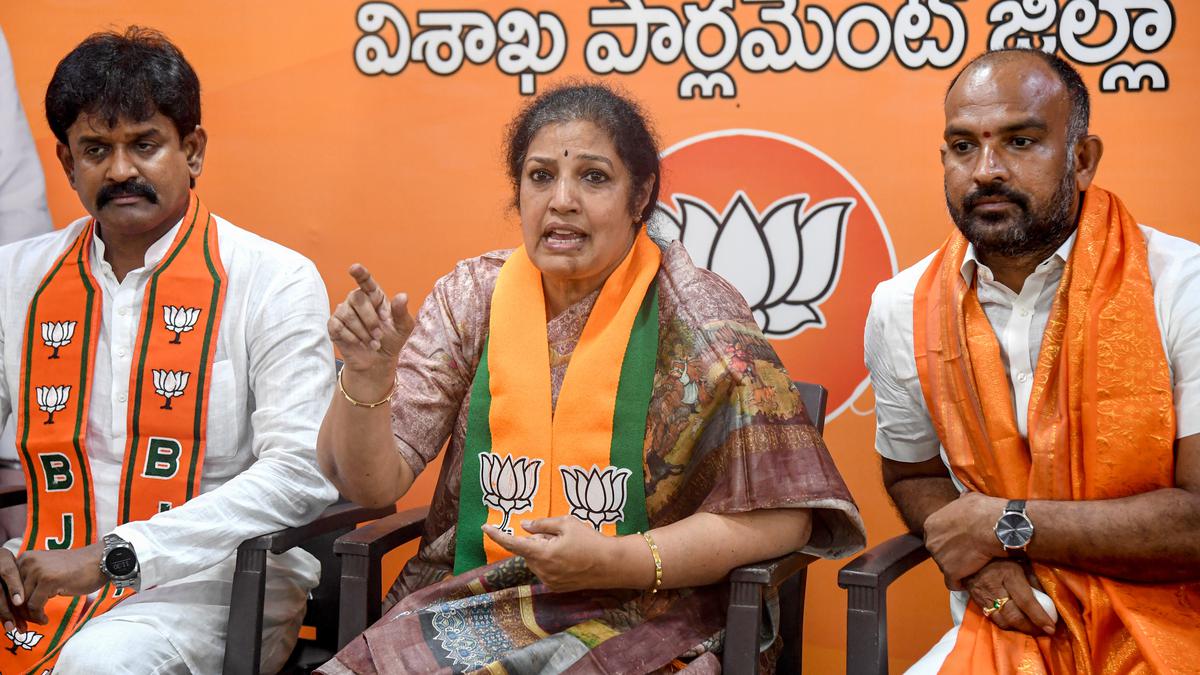
Purandeswari demands CBI inquiry into sale of ‘cheap liquor’ in Andhra Pradesh
The Hindu
The Government of Andhra Pradesh is selling cheap liquor, which is leading to several health issues among the boozers, BJP A.P. chief Purandeswari says, and adds that she has written to the Ministry of Health to get the quality of liquor being sold in State verified. The Central government has no role in the arrest of TDP chief Chandrababu Naidu as the CID is under the purview of the State Government, says Purandeswari.
Demanding a CBI inquiry into the “irregularities” in the sale of liquor in Andhra Pradesh, Bharatiya Janata Party (BJP) State president D. Purandeswari said on Saturday that she had already written a letter to the Union Health Ministry over the problems being faced by the people after consumption of the liquor being sold in the State.
Ms. Purandeswari was addressing the media after visiting the Gastroenterology Ward in the King George Hospital (KGH) here. She was accompanied by former MLA P. Vishnu Kumar Raju, Visakhapatnam parliamentary constituency president M. Ravindra and others.
As many as 52 patients were being treated for ‘liver cirrhosis’ in the ward, and most of them had been ailing due to consumption of cheap liquor, she said. The BJP leader also spoke to the patients and appealed them to stop consuming alcohol in the future.
“The government is selling cheap liquor in utter disregard to norms. By consuming this, a number of people are suffering from various health problems,” Ms. Purandeswari said, and added that she would soon meet the Union Health Minister and request him to get the quality of liquor being sold in the State verified.
Referring to the arrest of TDP national president N. Chandrababu Naidu allegedly in a false case by the CID, Ms. Purandeswari said that the Central government had no role in the episode as the CID was under the purview of the State Government. “It is unfair to make baseless allegations,” she said.
Ms. Purandeswari also said that the BJP was in alliance with the Jana Sena Party (JSP), and reiterated that it was the decision of BJP Central leadership to decide about alliances in the days to come.
Earlier, Ms. Purandeswari took part in a blood donation camp, which was organised as part of the two-week-long birthday celebrations of Prime Minister Narendra Modi.













